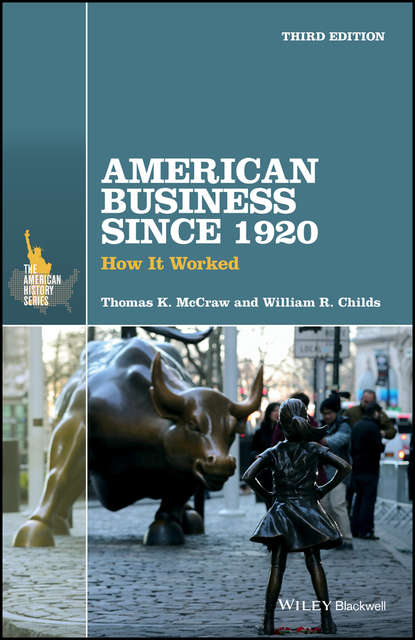
American Business Since 1920. How It Worked скачать fb2
Thomas McCraw K. - American Business Since 1920. How It Worked краткое содержание
Tells the story of how America’s biggest companies began, operated, and prospered post-World War I This book takes the vantage point of people working within companies as they responded to constant change created by consumers and technology. It focuses on the entrepreneur, the firm, and the industry, by showing—from the inside—how businesses operated after 1920, while offering a good deal of Modern American social and cultural history. The case studies and contextual chapters provide an in-depth understanding of the evolution of American management over nearly 100 years. American Business Since 1920: How It Worked presents historical struggles with decision making and the trend towards relative decentralization through stories of extraordinarily capable entrepreneurs and the organizations they led. It covers: Henry Ford and his competitor Alfred Sloan at General Motors during the 1920s; Neil McElroy at Procter & Gamble in the 1930s; Ferdinand Eberstadt at the government’s Controlled Materials Plan during World War II; David Sarnoff at RCA in the 1950s and 1960s; and Ray Kroc and his McDonald’s franchises in the late twentieth century and early twenty-first; and more. It also delves into such modern success stories as Amazon.com, eBay, and Google. Provides deep analysis of some of the most successful companies of the 20th century Contains topical chapters covering titans of the 2000s Part of Wiley-Blackwell’s highly praised American History Series American Business Since 1920: How It Worked is designed for use in both basic and advanced courses in American history, at the undergraduate and graduate levels.
Чтобы оставить свою оценку и/или комментарий, Вам нужно войти под своей учетной записью или зарегистрироваться



